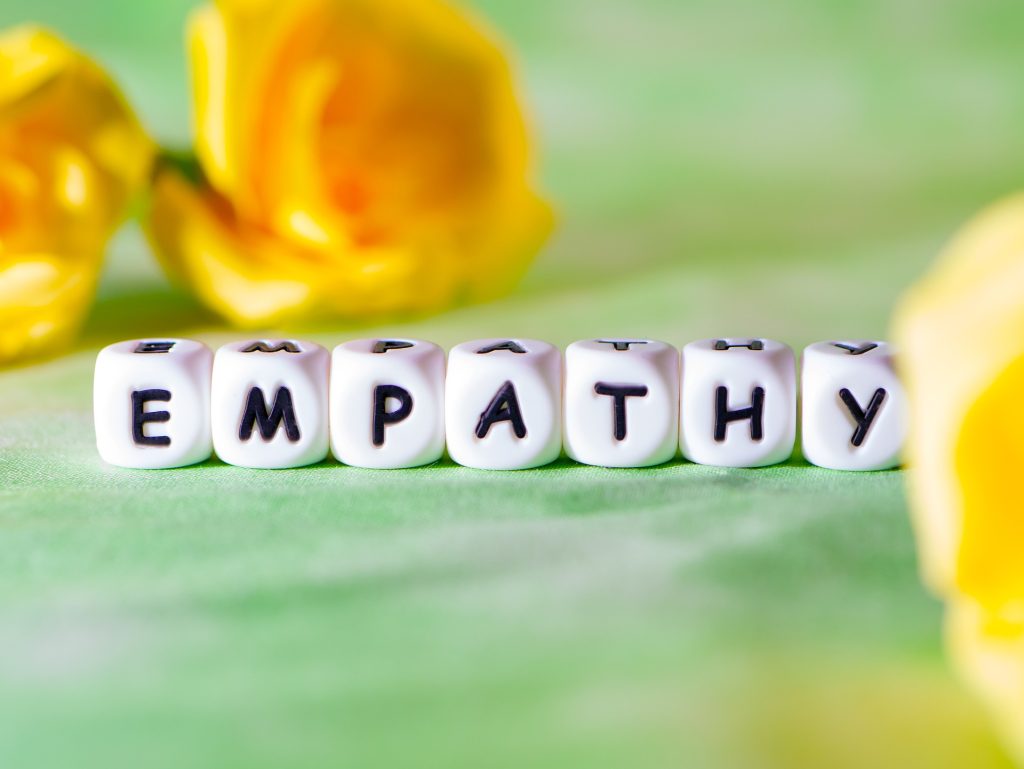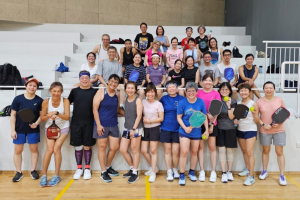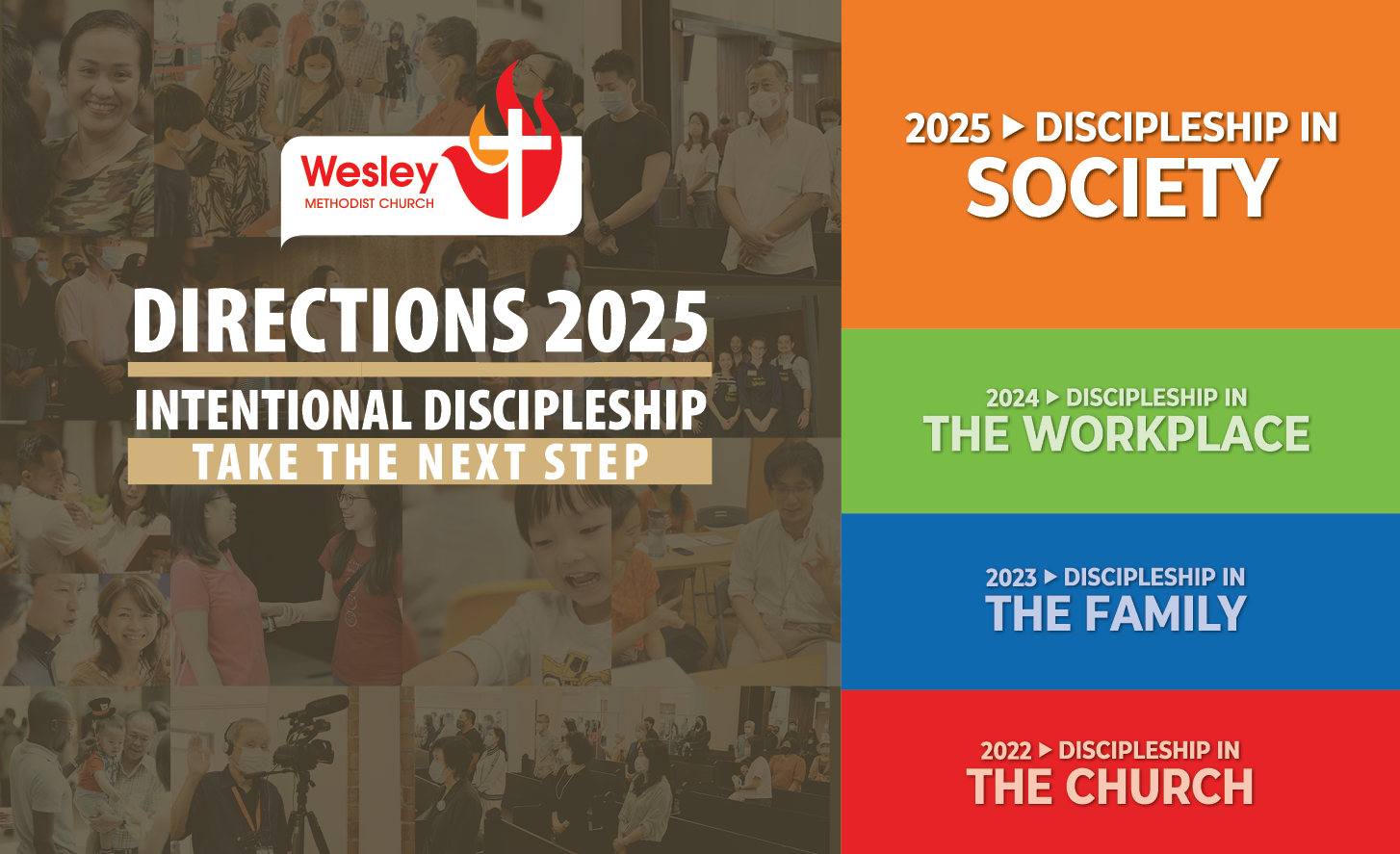23 July 2022 I Level 3 Hall
Emotional Intelligence (EQ) is the ability to recognise, understand, and manage your emotions and the emotions of others effectively. Research has deemed it as an important quality contributing to professional success and many areas of life such as family and relationships.
At the All I Needed To Know About Emotional Intelligence, I Learnt It At The Movies workshop helmed by Wesley Counsellors Tony Ting and Yap Siew Ling, participants learnt about the differences between Intelligence Quotient (IQ) and EQ, why EQ is important, and how to build and apply EQ skills in our life.
Through video clips from comedies, movies and a Korean drama (for the first time in the workshop series history), the three-an-a-half-hour interactive workshop focused on how we can understand ourselves better and understand others better through using the skills associated with EQ, and how EQ could help us communicate effectively, make decisions and handle stress.
EQ is a skill that can be acquired and improved. It is about knowing how to use the insights from understanding ourselves and others to skillfully avoid or solve relational problems.
Signs of a low EQ include low self-awareness, insensitivity, poor coping skills, a lack of accountability and low self-regulation. Some signs of a high EQ, among others, are attentiveness to others, comfort with silence, authenticity and sincerity, keeping commitments, and acceptance of and learning from criticism.
EQ comprises four main components — self-awareness, self-management, empathy and social skills.

Self-awareness
Self-awareness concerns knowing one self — e.g. our internal state, preferences, thoughts and emotions. It helps in knowing whether we are aligned with our values and accurately assessing how people perceive us.
The three competencies of self-awareness are having emotional awareness, accuracy in self-assessment and self-confidence.
People with good self-awareness are happier, and have good relationships and social control.
Participants were guided through a self-awareness exercise called the Johari Window, in which we identify our qualities and place them into four quadrants labelled Open, Hidden, Blind and Unknown. The exercise helps us to identify our strengths, weaknesses and blind spots.
Self- Management
Self-management refers to the ability to control or redirect disruptive impulses and moods. It is to have the propensity to suspend judgement and to think before acting.
The hallmarks of self-management include trustworthiness and integrity, comfort with ambiguity and openness to change.
Empathy
Empathy is the cornerstone of EQ. It is the ability to identify with and understand others’ desires, needs and perspectives. Having empathy means one is able to communicate with others according to their understanding of the others’ thoughts and feelings, and provide reflection and feedback with the person’s worldview in mind.
“Perhaps empathy isn’t about walking in someone else’s shoes; rather, it is about choosing to validate another person’s lived experience, regardless of whether we can fully understand the person’s experience,” Tony explained.

Social Skills
Social skills are what one uses to communicate and interact with others and to handle and influence others’ emotions effectively. “It is more than being sociable or chatty,” Siew Ling said. It is proficiency in managing relationships and building networks and to find common ground and build rapport with others.
Having good social skills helps one to have better communication, build relationships, and influence others in a positive way.
We can communicate better by using non-violent communication (NVC), a concept developed by Marshall Rosenberg that helps to reframe how we express ourselves, how we hear others, and resolve conflicts by focusing on what we are observing, feeling, needing and requesting.
It guides us to tune in to ourselves, acknowledge our needs, and communicate them clearly, honestly and respectfully, while valuing the needs of others.
NVC means to always state the truth and express it objectively — sharing the following components:
a. Our observation— without judgement
b. Our feelings — that is free of thought
c. Our needs — that is in relation to the identified feeling
d. Our request — without demand
When we are willing to hear a ‘no’ response to our request, and recognise that a ‘no’ response is an expression of a need of the other person, we would be better able to work with ourselves and others to find ways to meet those needs. This also helps the other person to experience choice in their response.
Having EQ helps us to understand and manage our emotions, and honestly express our needs. When we emphatically listen to others’ feelings and needs, we can better understand them, and finally be able to influence them and build better connections that would positively impact our lives.

The workshop encompassed active discussion, sharing and interaction from the participants, who shared their thoughts and learnings about the video clips, worksheet exercise and the issues that were raised during the discussions. Here is what some participants think about the workshop.
I think it is very creative to use movies to show how we can relate to these skills.
– Patricia
The workshop is interesting and I learnt about self-awareness through the Johari Window worksheet. It also helps one to learn about myself and others.
– Miriam
I learnt that relationships matter, and the use of sensitivity and empathy is important when communicating with others. I learnt that even if I think I am right, I don’t have to impose my opinion on others.
– Shirley
EQ has been very well defined using the four components. Also, NVC is a good skill set in terms of social skills.
– Michelle
I learnt that self-control is very important in any communication — to learn to pause and not to be too quick to talk, and to listen to my own voice and to others’ voices.
– Chloe
Read also: Learning to Help Others with Addictions through the Movies







